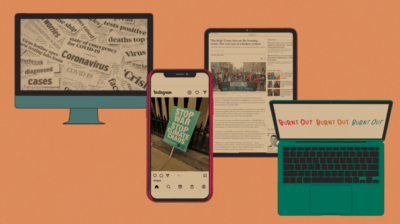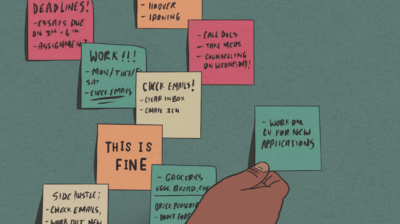Your Rights as a Domestic Worker or Au Pair
Find out more about the differences with rights when working in someone’s home

You’re a domestic worker if you’re employed to work within someone’s private home. The most common kinds of domestic workers are housekeepers, cleaners, carers and au pairs. A domestic worker is employed directly by the owner of the home; if you’re not, you may be an agency worker or self-employed. It’s very common for domestic workers to be migrant workers, often from outside of the European Union. These workers need to have an employment permit to legally work in Ireland.
What are my rights?
Employers of domestic workers are allowed to discriminate when hiring. This means they can specify that they want their employee to be a woman, for example. However, once you are employed as a domestic worker or au pair you have the same rights and protections as anyone else. Your rights include:
- A written contract of employment setting out your pay, hours, job title and type of work
- To be paid at least the National Minimum Wage and to get a payslip
- To have your dignity and privacy respected by your employer
- To join a trade union if you want to
- To have your employer keep records of your time in work and pay all relevant taxes on your behalf
- Not to have your employer hold your personal documents such as your passport or visa.
Hours of work and time off
You also have rights as a domestic worker or au pair around your hours of work. No employee in Ireland can work more than an average of 48 hours per week. You also have a right to 11 consecutive hours of rest per day and at least a full day off each week. You should get a 15-minute break after four and a half hours of work and a 30-minute break after six hours of work. As well as this, you are entitled to at least four weeks’ paid holiday every year, and the same nine paid public holidays as everyone else. If you work Sundays, you should get extra pay or paid time off.
Living with your employer
Sometimes a domestic worker will be required to live with their employer. If so, you should always have a private, secure room with your own bed. You can’t be forced to share a room with someone else unless you agree to do it before taking the job. You must also have a living arrangement that allows you to pursue your own interests and leisure activities in your time off. If you’re required to go on holidays with your employer or their family, this counts as work and you should be paid for it. It does not count towards your annual leave from the job.
If your employer charges you for food and accommodation they can deduct this from your wage so long as they are fair and reasonable. An employer can’t make deductions that aren’t mentioned in your contract. The maximum amount they can deduct for food and board are:
For food and accommodation:
- For food only: €32.14 a week or €4.60 per day
- For accommodation only: €21.85 or €3.14 per day.
Getting fired from domestic work
If you’re dismissed from your job as a domestic worker or au pair you have certain rights your employer has to respect. You are entitled to a week’s notice of losing your job if you’ve worked for your employer for at least 13 weeks. This goes up to two weeks if you’ve worked more than two years, four weeks for more than five years and so on. Once you’ve worked for someone for more than a year, you’re also protected against unfair dismissal. No matter how long you’ve worked for someone you can’t be fired for trade union activity, pregnancy or demanding the minimum wage.
Making a complaint
If you have any complaints that your employment rights aren’t being respected you can contact the Workplace Relations Commission. If you’re a migrant worker, the Migrant Rights Centre of Ireland (MRCI) can also help you with any questions or problems.
Need more information?
We are here to answer your questions and talk through your options. Our online chat service is for 16 to 25 year olds and is available Monday to Friday, 4pm to 8pm. Chat to us now about your situation.
- Chat now to a trained Youth Information Officer
- Or leave us a message and we will email you back






